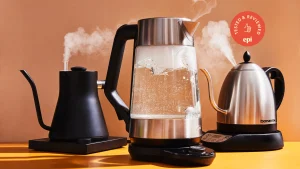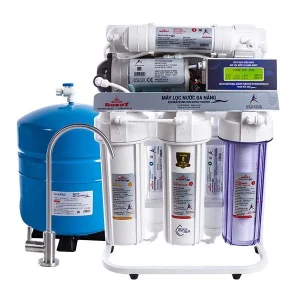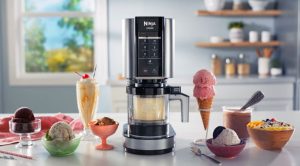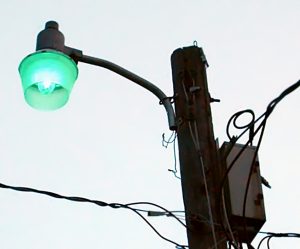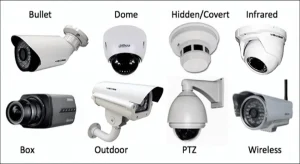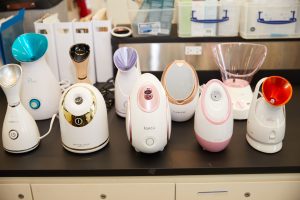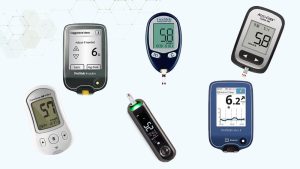Coffee Machine: What Is It? How It Works, Applications, and Safe Usage Tips

A coffee machine is an essential appliance for coffee lovers, offering a convenient and efficient way to brew coffee at home or in offices. It comes in various designs and functionalities, catering to different preferences and brewing needs. In this article, we will explore what a coffee machine is, how it works, its practical applications, and how to use it safely.
1. What Is a Coffee Machine?
A coffee machine is an electrical appliance designed to brew coffee by forcing hot water through ground coffee beans, extracting their flavor and aroma. Coffee machines are available in a wide range of styles, from simple drip machines to advanced espresso machines, offering a variety of brewing methods to suit different tastes.
Common Types of Coffee Machines:
- Drip Coffee Machines: These are the most common type, often found in households and offices. Water is heated and then dripped over a filter containing ground coffee, with the brewed coffee collecting in a carafe.
- Espresso Machines: These machines are designed to brew espresso by forcing pressurized hot water through finely-ground coffee. They are ideal for those who enjoy strong coffee or specialty drinks like lattes and cappuccinos.
- Single-Serve Coffee Machines (Pod Coffee Makers): These machines use pre-packaged coffee pods or capsules, making it easy to brew a single cup of coffee. Popular brands include Keurig and Nespresso.
- French Press (Press Pot): A manual brewing device where ground coffee is steeped in hot water, and then a plunger is pressed to separate the coffee grounds from the brewed coffee.
- Percolators: These coffee machines use boiling water to create pressure that circulates through the coffee grounds, resulting in a stronger coffee flavor.
Benefits of Using a Coffee Machine:
- Convenience: Coffee machines save time by automatically brewing coffee with minimal effort.
- Variety: They allow you to brew different types of coffee, from simple black coffee to more complex beverages like lattes and cappuccinos.
- Consistency: A coffee machine ensures a consistent brewing process, providing the same quality of coffee every time.
- Energy Efficient: Modern coffee machines are designed to use energy efficiently, minimizing power consumption while brewing.
2. How Does a Coffee Machine Work?
The working principle of a coffee machine varies depending on the type, but all machines follow a basic process of heating water and passing it through coffee grounds to extract flavor. Here’s an overview of how coffee machines operate:
Key Components of a Coffee Machine:
- Water Reservoir: This is the container that holds the water before it is heated. The size of the reservoir depends on the type and capacity of the coffee machine.
- Heating Element: The heating element is responsible for bringing the water to the right temperature, usually between 195°F and 205°F (90°C and 96°C) for optimal extraction.
- Filter: The filter holds the ground coffee in place, preventing it from mixing with the brewed liquid. Some machines use paper filters, while others have reusable metal filters.
- Coffee Grounds: The ground coffee is placed in the filter, and when water passes through it, the coffee’s flavors and oils are extracted.
- Brew Basket or Portafilter: In drip machines, the brew basket holds the coffee filter and grounds, while in espresso machines, the portafilter holds the finely-ground coffee and is locked into the machine.
- Drip Tray or Carafe: The brewed coffee drips into a carafe or mug, where it can be served.
Working Principle:
- The water reservoir is filled with water, which is then heated by the machine’s heating element.
- Once the water reaches the appropriate temperature, it is pushed through a tube and directed over the coffee grounds in the filter.
- As the hot water flows through the grounds, it absorbs the coffee’s flavor and aroma, creating brewed coffee.
- The coffee is then collected in the carafe or cup, ready to be served.
Espresso machines operate similarly but use high-pressure pumps to force hot water through finely-ground coffee, producing a concentrated shot of coffee.
3. Applications of Coffee Machines
Coffee machines are widely used in various settings for both personal and professional use. Here are some common applications:
Home Use:
- Daily Coffee Brewing: Most households use a coffee machine to prepare coffee for daily consumption, whether it’s a single cup or a full pot.
- Specialty Coffee Drinks: Espresso machines and other specialty machines are used in homes to create drinks like cappuccinos, lattes, and macchiatos, perfect for those who enjoy barista-style coffee at home.
- Entertaining Guests: Coffee machines are essential when hosting gatherings or events, allowing hosts to easily serve coffee to guests.
Office Use:
- Office Coffee Breaks: Coffee machines are a staple in offices, providing employees with the convenience of having freshly brewed coffee throughout the workday.
- Single-Serve Machines for Convenience: In offices with limited space or for employees who prefer different coffee types, single-serve machines (pod coffee makers) offer a fast and convenient solution.
Commercial Use:
- Cafes and Restaurants: Espresso machines and large coffee brewers are used in cafes and restaurants to serve coffee drinks to customers quickly and consistently.
- Hotels and Catering Services: Coffee machines are essential in hospitality settings, providing guests with hot beverages as part of their breakfast or during events.
- Food and Beverage Industry: Coffee machines are used in various parts of the food service industry to provide customers with coffee as part of their overall service offerings.
4. How to Use a Coffee Machine Safely
While coffee machines are relatively safe appliances, it’s important to use them properly to avoid accidents and ensure long-lasting performance. Here are some key safety tips:
Proper Setup and Placement:
- Place on a Stable Surface: Always place your coffee machine on a flat, stable surface to prevent it from tipping over during operation.
- Avoid Overfilling the Water Reservoir: Never overfill the water reservoir to prevent leaks and spills. Follow the machine’s maximum fill line for safe operation.
- Keep Electrical Connections Dry: Ensure the power cord and electrical components are kept dry to prevent electrical hazards.
Regular Maintenance:
- Clean the Machine Regularly: Coffee machines should be cleaned regularly to prevent coffee oils and mineral buildup, which can affect the taste of the coffee and the machine’s efficiency.
- For drip coffee machines, clean the water reservoir and carafe after each use.
- For espresso machines, clean the portafilter, steam wand, and drip tray after each use.
- Descale the Machine: Over time, mineral deposits can build up in the machine, especially if you live in an area with hard water. Use descaling solutions periodically to keep the machine in top condition.
- Replace Filters: If your machine uses paper filters, replace them regularly. For machines with reusable filters, clean them thoroughly after each use to ensure optimal performance.
Safety Features:
- Auto Shut-Off: Many modern coffee machines come with an automatic shut-off feature that turns the machine off after a certain period of inactivity. This helps prevent overheating or electrical hazards.
- Use the Machine When It’s Empty: Never operate the coffee machine when the water reservoir is empty, as it could damage the heating element.
- Handle Hot Surfaces Carefully: Coffee machines can get hot during use, so be cautious when handling the carafe or machine’s exterior.
Child Safety:
- Keep Out of Reach of Children: Coffee machines should be kept out of reach of children to prevent accidents involving hot surfaces, water, or sharp components.
- Supervise Use: If children are in the area, supervise them while the coffee machine is in operation.
Conclusion
A coffee machine is an invaluable tool for coffee enthusiasts, offering a quick and convenient way to enjoy freshly brewed coffee at home, in the office, or in commercial settings. By understanding how coffee machines work, knowing how to use them properly, and maintaining them regularly, you can enjoy delicious coffee safely and efficiently. Whether you’re brewing a simple cup of coffee or creating a specialty espresso drink, a coffee machine is a reliable companion for your coffee needs.
